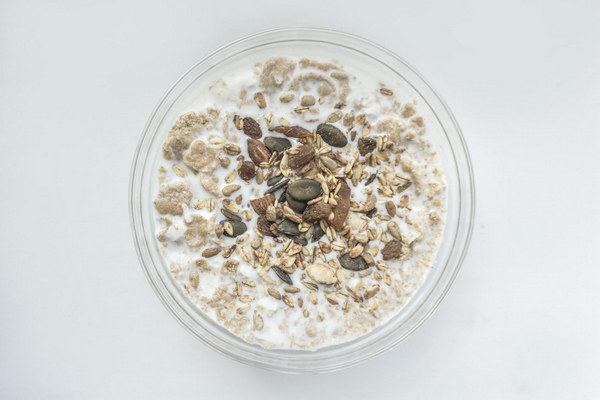Is Oatmeal Really Good for Your Stomach Exploring the Benefits of Oatmeal for Digestive Health
Introduction:
Oatmeal has long been a staple in breakfast routines, celebrated for its creamy texture and nutty flavor. But beyond its taste, many people wonder if oatmeal is actually beneficial for digestive health. The question Is oatmeal good for your stomach? has sparked debates among nutritionists and health enthusiasts. In this article, we'll delve into the science behind oatmeal's digestive benefits and explore how it can contribute to a healthier gut.
The Nutritional Profile of Oatmeal:

To understand whether oatmeal is good for your stomach, it's important to first look at its nutritional content. Oatmeal is rich in fiber, vitamins, and minerals, making it a nutritious option for a balanced diet. Here's a breakdown of the key nutrients found in oatmeal:
1. Soluble Fiber: Oatmeal is high in soluble fiber, which is known to help regulate blood sugar levels and lower cholesterol. This type of fiber also forms a gel-like substance when it comes into contact with water, which can slow down digestion and aid in the absorption of nutrients.
2. Insoluble Fiber: While not as well-known as soluble fiber, insoluble fiber is also present in oatmeal. This type of fiber adds bulk to stool, which can help prevent constipation and promote regular bowel movements.
3. Beta-Glucans: Oatmeal contains beta-glucans, a type of soluble fiber that has been shown to have prebiotic properties. Prebiotics are foods that feed the good bacteria in your gut, helping to maintain a healthy gut microbiome.
4. Vitamins and Minerals: Oatmeal is a good source of vitamins B1, B5, B6, and E, as well as minerals like iron, magnesium, and zinc.
How Oatmeal Benefits Digestive Health:
Now that we know what oatmeal contains, let's explore how it can contribute to a healthier stomach:
1. Alleviates Constipation: The high fiber content in oatmeal can help alleviate constipation by adding bulk to stool and promoting regular bowel movements.
2. Prevents Diarrhea: While fiber can help with constipation, it can also have the opposite effect if consumed in excess. However, the type of fiber in oatmeal is usually well-tolerated and can help regulate bowel movements, preventing both constipation and diarrhea.
3. Supports Gut Health: The beta-glucans in oatmeal have been shown to support the growth of beneficial gut bacteria, which is crucial for maintaining a healthy gut microbiome. A balanced gut microbiome can help improve digestion, absorption of nutrients, and overall gut health.
4. Reduces Inflammation: Oatmeal has anti-inflammatory properties, which can help reduce inflammation in the gut lining. Chronic inflammation in the digestive tract can lead to conditions such as irritable bowel syndrome (IBS) and Crohn's disease.
5. Lowers Cholesterol: The soluble fiber in oatmeal can also help lower cholesterol levels, which can reduce the risk of heart disease and improve overall cardiovascular health.
Conclusion:
In conclusion, the answer to the question Is oatmeal good for your stomach? is a resounding yes. Oatmeal's high fiber content, along with its vitamins, minerals, and prebiotic properties, make it an excellent choice for promoting digestive health. Incorporating oatmeal into your diet can help alleviate constipation, prevent diarrhea, support gut health, reduce inflammation, and lower cholesterol levels. So, the next time you're considering a healthy breakfast option, don't hesitate to reach for a bowl of oatmeal.









